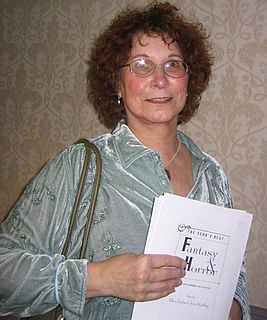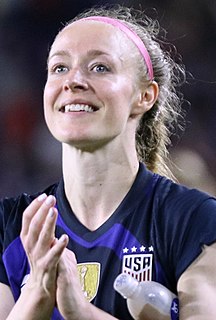A Quote by Tod Goldberg
It's an unusual way to write a crime novel, to have these lingering, fairly large story points, but it's something I knew I had to do if I wanted to write a sequel...but, you know, people still have to read and enjoy this book, or it's a moot point.
Related Quotes
I read John Irving's novel 'The World According To Garp' when I was about 14 or 15. It was the first grown-up book that I had read. It is the story of a young man who grows up to be a novelist. I finished it, and I wanted to write a book that made the reader feel the way I felt at the end of that, which was sort of both bereft and elated.
I had a lot of great lakes of ignorance that I was up against, I would write what I knew in almost like islands that were rising up out of the oceans. Then I would take time off and read, sometimes for months, then I would write more of what I knew, and saw what I could see, as much as the story as I could see. And then at a certain point I had to write out what I thought was the plot because it was so hard to keep it all together in my head. And then I started to write in a more linear way.
I always knew from the beginning that this was the only way to write Then We Came To The End - that it had to be in first - person plural if it was going to illustrate how the individual becomes part of the collective. I had no interest in writing the book in a more conventional voice. It goes back to that fascination I had with telling a story in multiple ways. It was the only choice I gave myself, really - I said "This is it, pal. If you can't tell a story this way, you're going to have to abandon the book. Write it this way or give up."
I wanted to be a musician. I just wanted to be famous because I wanted to escape from what I felt was my limitation in life... And I wanted to write music, and I didn’t know what I was doing and I never had the technique or understanding of it... But I’ve always played the piano and I can improvise on the piano, but the problem is that I can’t write down what I write. I can read music but I can’t write numbers.
Write what you want to read. So many people think they need to write a particular kind of book, or imitate a successful style, in order to be published. I've known people who felt they had to model their book on existing blockbusters, or write in a genre that's supposed to be "hot right now" in order to get agents and publishers interested. But if you're writing in a genre you don't like, or modeling yourself on a book you don't respect, it'll show through. You're your first, most important reader, so write the book that reader really wants to read.
In terms of the economics, yes obviously the rise of e-books and how people choose to read books has a big effect on the economics of the game. But whether people are buying them on paper or downloading them there's still some poor wretch in a room who is trying to write a poem, write a story, write a novel. And so my job doesn't change. It's just how people receive it and economic conditions on the ground change, but that doesn't affect what I write.
The process for writing a picture book is completely different from the process of writing a chapter book or novel. For one thing, most of my picture books rhyme. Also, when I write a picture book I'm always thinking about the role the pictures will play in the telling of the story. It can take me several months to write a picture book, but it takes me several years to write a novel.


































